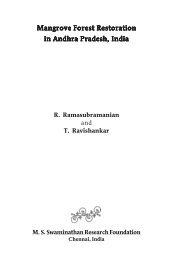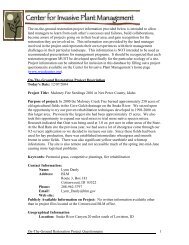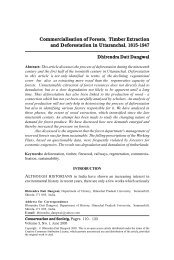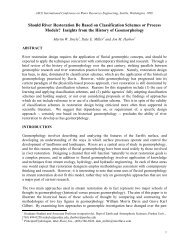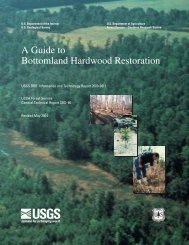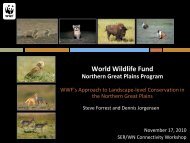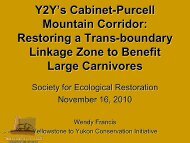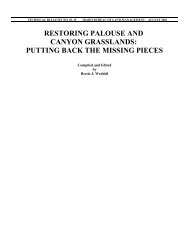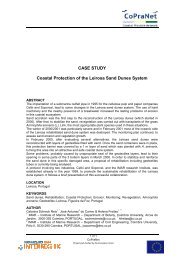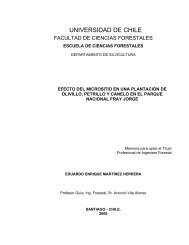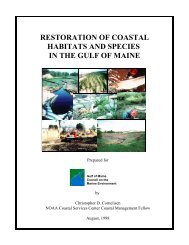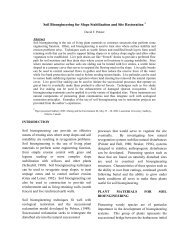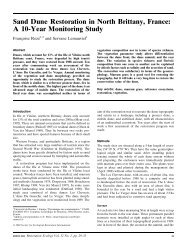Yesler Creek Headwaters Reforestation Project - Global Restoration ...
Yesler Creek Headwaters Reforestation Project - Global Restoration ...
Yesler Creek Headwaters Reforestation Project - Global Restoration ...
Create successful ePaper yourself
Turn your PDF publications into a flip-book with our unique Google optimized e-Paper software.
Community <strong>Restoration</strong> Network<br />
<strong>Project</strong> Profile: <strong>Yesler</strong> <strong>Creek</strong> <strong>Headwaters</strong> <strong>Reforestation</strong> <strong>Project</strong><br />
<strong>Project</strong> Location:<br />
Seattle, Washington, USA<br />
<strong>Project</strong> Manager/Coordinator:<br />
University of Washington <strong>Restoration</strong> Ecology Network (UWREN)<br />
Patrick Schwartzkopf 2006-2007<br />
Justin Howell 2007-2008<br />
<strong>Project</strong> Duration:<br />
Ongoing<br />
Ecosystem to be Restored:<br />
Puget Sound riparian forest<br />
Area to be Restored:<br />
6 parcels of approximately 800m2<br />
2400m2 restored to date.<br />
before<br />
Primary Cause of Degradation:<br />
Land use conversion from Forest to agriculture, to rail<br />
corridor/military to urban residential development.<br />
<strong>Project</strong> Goal:<br />
Promote the establishment of a multi-layered native lowland<br />
Puget Sound riparian plant and wildlife community.<br />
Create a sense of community ownership and foster greater park<br />
stewardship to ensure ongoing success of past, current, and future<br />
restoration efforts<br />
<strong>Restoration</strong> Treatments Used:<br />
Manual removal of invasive species<br />
Herbicide application to invasive tree species<br />
Site conditioning with live stakes (Salix spp.) and wood mulch<br />
Replanting with native species<br />
after<br />
Community Involvement:<br />
Regular volunteer events held with local citizens and corporations.<br />
Design and installation managed by University of Washington students.<br />
Benefits to Local Ecology:<br />
• Over 9000lbs of invasive biomass removed or composted on site<br />
• Over 2400 m2 total restored area<br />
• Approximately 2000 native plants installed<br />
• 50% increase in ground cover by native species
• Enhanced riparian habitat for amphibians and birds<br />
• Increased habitat connectivity in the <strong>Yesler</strong> <strong>Creek</strong> watershed.<br />
Directions for the Future:<br />
Continued work by the University of Washington <strong>Restoration</strong> Ecology Network Capstone Course to complete<br />
remaining parcels.<br />
Continue outreach to involve the local neighborhood.<br />
Funding/Support:<br />
Seattle Public Utilities Climate Action Grant<br />
Seattle Parks Department<br />
Bonnie Miller of The <strong>Yesler</strong> <strong>Creek</strong> <strong>Headwaters</strong> <strong>Reforestation</strong> <strong>Project</strong><br />
Boeing Corporation for volunteer support<br />
References/Contacts:<br />
UWREN- http://depts.washington.edu/uwren/<br />
Justin Howell 2007-2008 <strong>Project</strong> Lead<br />
Justin@restorationbydesign.net<br />
The Community <strong>Restoration</strong> Network is a sub-tier of the <strong>Global</strong> <strong>Restoration</strong> Network<br />
(<strong>Global</strong><strong>Restoration</strong>Network.org), a project of the Society for Ecological <strong>Restoration</strong> International.



